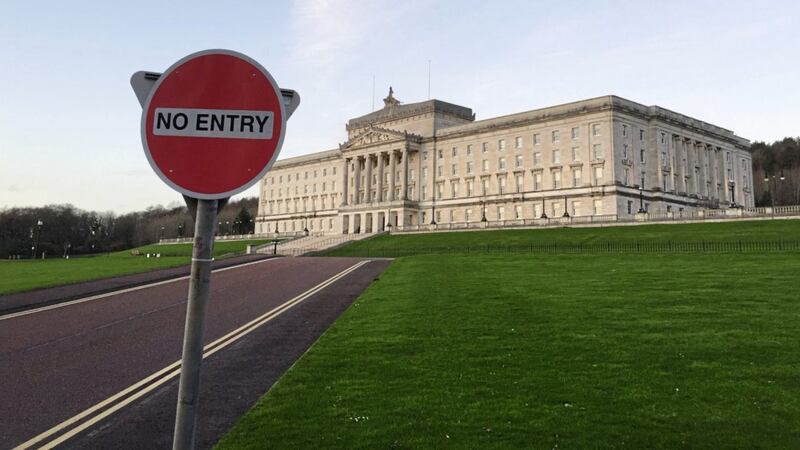The north’s Lord Chief Justice Sir Declan Morgan told UTV’s ‘Lasting Legacy’ programme that when the Good Friday Agreement was reached in 1998 the item ‘legacy’ was put in a box marked ‘too difficult’.
He added, ‘We’ve got to take it out of that box; we’ve got to address it.’ Obviously that’s the item of most concern to Morgan. However, legacy is only one of many items that fell into the same category: too difficult.
The phrase ‘too difficult’ is truncated. The full sentence should be, ‘too difficult for the northern political parties to resolve’.
Policing was another matter. So was decommissioning. The solution in 1998 was to hand the problem over to independent commissions, in those cases the Patten Commission and the Decommissioning Commission. As with all proposals for change, both these ran into intense opposition from unionists. Progress depended on how unionist a given proconsul was. In the case of Peter Mandelson the answer was ‘very’, just like his awful grandfather Herbert Morrison who, as home secretary, interned Cahir Healy MP during the war. Mandelson had a lasting baleful effect on police reform and reform of symbols and regalia in courts in the north.
However, some lessons were learnt in the early years after the Good Friday Agreement. The most important one was this. The only way to make progress on matters ‘too difficult for northern parties’ was for the two governments to operate together to force the pace. The GFA was simply the formal beginning of the political process in the north which continued in fits and starts up to 2010-11. First, in 2010 David Cameron and the Conservatives became the government with the pathetically grateful forelock-tugging Lib Dems as their mudguard. Then Enda Kenny became taoiseach. Neither of them cared tuppence for the north and demonstrated their insouciance conclusively over the next five years.
In the previous five years the two governments had made signal progress, first at St Andrews by inveigling Paisley and his motley crew into the north’s administration, getting Sinn Féin to support the PSNI, stand down the IRA and decommission their arsenal of AK-47s and Semtex. Then finally, on February 5, 2010 at Hillsborough, Gordon Brown and Brian Cowen arm wrestled Peter Robinson into agreeing joint administration of justice and policing with Sinn Féin. Just as in December 2006, there was turmoil among the DUP troglodytes, but under pressure from Brown, Robinson prevailed.
Since then, as Cameron and Kenny took their eyes off the north and appointed useless ministers responsible for matters here, things have fallen apart. The ‘too difficult’ items – legacy, flags, emblems, parades, Irish language, equality legislation– were supposed to be dealt with by the Stormont House agreement, then its successor Fresh Start, all part of the long-delayed political process. However, a succession of increasingly pro-unionist proconsuls and disengaged Irish foreign ministers resolved only to hatchet Sinn Féin, meant there has been no progress at all. The fundamental lesson, two governments operating in unison, has been cast aside. There will be no progress until that resumes, extremely unlikely in the foreseeable future.
Now, why should the ten DUP MPs sitting ready to be bought in a new confidence and supply deal when the ancient Conservative party members elect a new prime minister, make a deal on any of the ‘too difficult’ items? Why should they, when the Conservatives are terrified of an election and will do anything to keep the DUP on side until the next one is due in 2022? Why should they, when a new proconsul will arrive with a sole function as the two previous ones, to act as delivery driver, pronto, for whatever the DUP orders?
Furthermore, even if Sinn Féin did a deal in such unfavourable, one-sided circumstances it would never be delivered, any more than the Stormont House Agreement or Fresh Start, neither of which the British government or the DUP had any intention of honouring. What the British government and the DUP are compelling Sinn Féin to wonder is whether any administration in the north can work. Have you asked yourself why Gerry Adams’s Leargas blog last Thursday indicated that Sinn Féin’s priority is a border poll? Not a word about Stormont talks.









